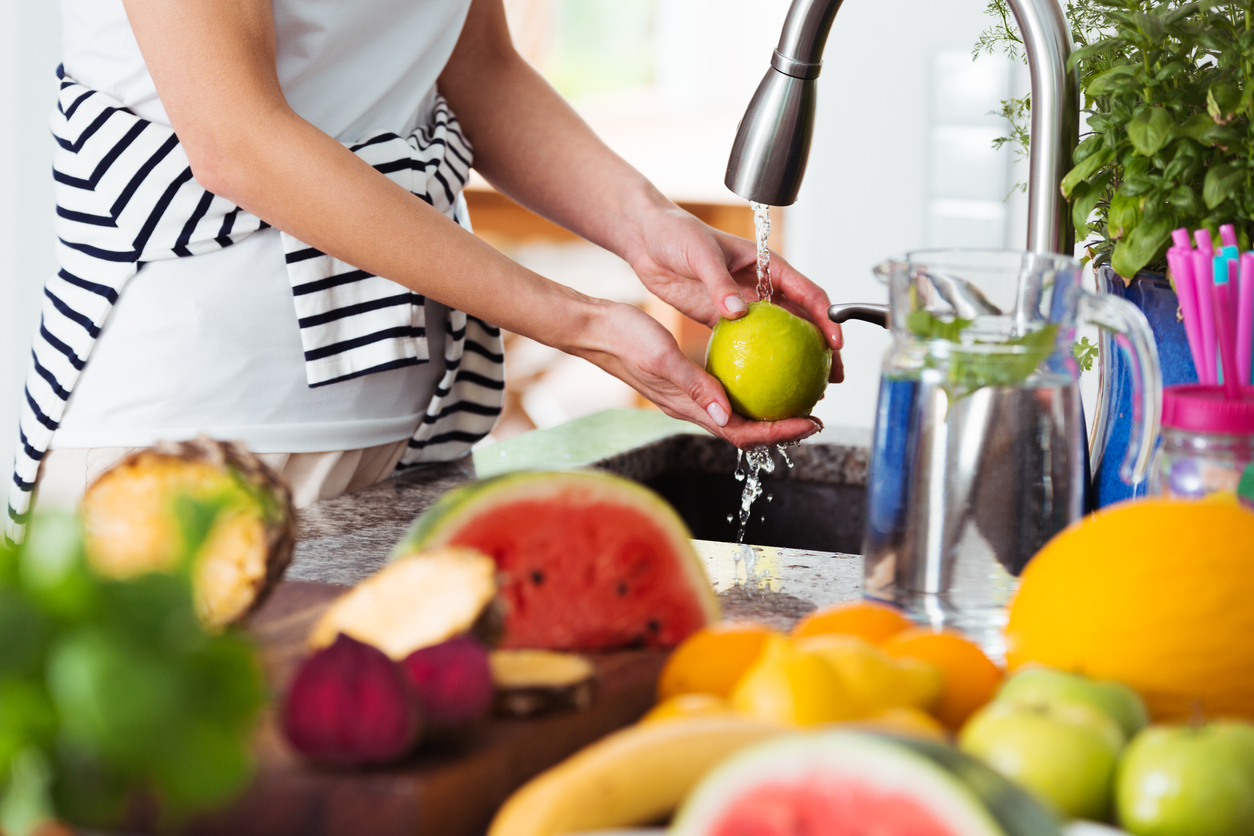 Gastric sleeve, gastric bypass, and lap band patients are often focused on WHAT they are eating, but how they treat those foods can be just as important. After all, what good is eating an apple if it’s been contaminated with salmonella? Bariatric patients need to be diligent in keeping their food safe. Foodborne illness can lead to nausea, vomiting, diarrhea, fever, dehydration, and hospitalization.
Gastric sleeve, gastric bypass, and lap band patients are often focused on WHAT they are eating, but how they treat those foods can be just as important. After all, what good is eating an apple if it’s been contaminated with salmonella? Bariatric patients need to be diligent in keeping their food safe. Foodborne illness can lead to nausea, vomiting, diarrhea, fever, dehydration, and hospitalization.
We’ve gathered 5 tips for bariatric patients to follow to help keep them (and their food) safe:
- Wash fruits and vegetables before cutting
This also goes for hard skinned fruits or ones where you don’t eat the skin, like cantaloupe, honeydew, kiwi, cucumbers, or oranges. The problem is if the outer skin is dirty or contaminated you will introduce the bacteria on the outside to the inside of the fruit that you’re about to eat if you don’t wash it first. Rinse the fruit under running water before cutting, or consider using a brush for hard skinned fruits like cantaloupe.
- Do not wash raw poultry
Some people will argue this, but the CDC is clear: do not wash raw chicken or turkey. The bacteria on the meat is killed in the cooking process not in the precooking rinse. But, the rinsing can introduce harmful bacteria to your countertops, kitchen sink, sponge, dishrags, or other foods.
- Use temperature (not clear juice) to indicate cooked chicken
Sometimes the juices from chicken run clear even though it’s not completely cooked. Using clear juices to judge if poultry is cooked can lead to foodborne illness. Use a thermometer to check for doneness: 165℉ is the recommended temperature for poultry.
- Do not use the same tongs (and platter) for raw meat and cooked meat
Picture it: you place your raw sliders on a platter, walk out to the grill, use your tongs to place them on the grill, then use the tongs to take them off the grill, put the sliders on the platter, and put the platter down on the dining table. Have you done this? Many people do without realizing the danger. What they don’t realize is that the tongs and platter can harbor bacteria from the raw meat that can contaminate the cooked meat. Your best best is to use a new set of tongs and a fresh platter, or to wash the tongs and platter in warm, soapy water while your sliders cook on the grill.
- Don’t judge leftovers by smell, sight, or taste
You can not tell if leftovers have spoiled by judging with sight, taste, or even smell. The bacteria that can cause foodborne illness do not usually alter the taste, smell, or sight of the food. It’s best to use leftovers within three to four days. If you can’t eat it all within that time frame, you can freeze it to use later. Gastric sleeve, gastric bypass, and lap band patients can use single portion containers to freeze leftovers to always have a quick and easy dinner in the freezer for nights when they are running late or just don’t have time to cook. This helps to prevent the impulse to stop for take out and helps us better control our weight loss.
The above food safety information is offered by Dr. Shillingford, MD, PA, a board certified surgeon specializing in advanced laparoscopic and weight loss surgery. Dr. Shillingford has performed over 4,000 bariatric procedures, including gastric sleeve, gastric bypass, lap band, and revisional surgery. In addition to his bariatric patients, Dr. Shillingford’s general surgery patients (hernia repair, gallbladder removal, appendectomy patients) may find this information on foodborne illness useful as well. To schedule a surgical consultation with Dr. Shillingford for gastric sleeve, gastric bypass, gastric banding, hernia repair, gallbladder removal, or any other general surgery, please call his Boca Raton office at (561) 483-8840.

 Am I A Candidate
Am I A Candidate  BMI Calculator
BMI Calculator  Why Choose Us
Why Choose Us